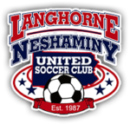US Soccer Changes
Age-Group
Overview of US Soccer age-group changes:
The often confusing—August 1 to July 31 “soccer age” was discontinued, beginning with the 2016-17 cycle. Instead, teams will be organized by player year of birth: 2004, 2005, 2006, etc.
The primary reason behind this is that the United States Soccer Federation (USSF) decided to move the United States to the global age-group standard and EPYSA has to follow suit. The US already does this at the ODP level, and will now expand this to fully include all of youth travel soccer. This is a 'mandate', meaning that ALL youth soccer clubs MUST comply, without exception.
US Soccer will still categorize age groups with the “Under” designation (example: U9, U10, U11, etc). However, the definition of these categories will change, beginning with the 2016-17 season. This is being done in order to align the definition to the birth year changes.
Example:
- U10 New Definition: Player must be born in 2010.
- U9 New Definition: Player must be born in 2011.
Langhorne Neshaminy United Soccer Club (LNUSC) implementation of mandated age-group changes:
Because the age group changes went into effect for the 2016-17 season, when LNUSC travel team tryouts are held U9 thru U10 players will be assigned to age groups by birth year to align with the new standard.
LNUSC recognizes that one of the primary reasons that kids play soccer—at all levels—is the fun and camaraderie of playing with their friends. To that end, LNUSC has designed the implementation of age appropriate play for the 2019-20 season with the following considerations:
- Adhere to the developmental intent of the new standards.
- Move closer to be in-line with the surrounding clubs in regards to age-appropriate play.
- Allow older, long-established teams to remain together, if desired.
LNUSC’s implementation plan was carefully and thoughtfully constructed starting when US Soccer announced the mandated changes earlier in 2015. Our Travel Soccer Committee consulting with the club's leadership, EPYSA, travel leagues (ICSL & PAGS), many local soccer clubs, and our travel team coaches.
